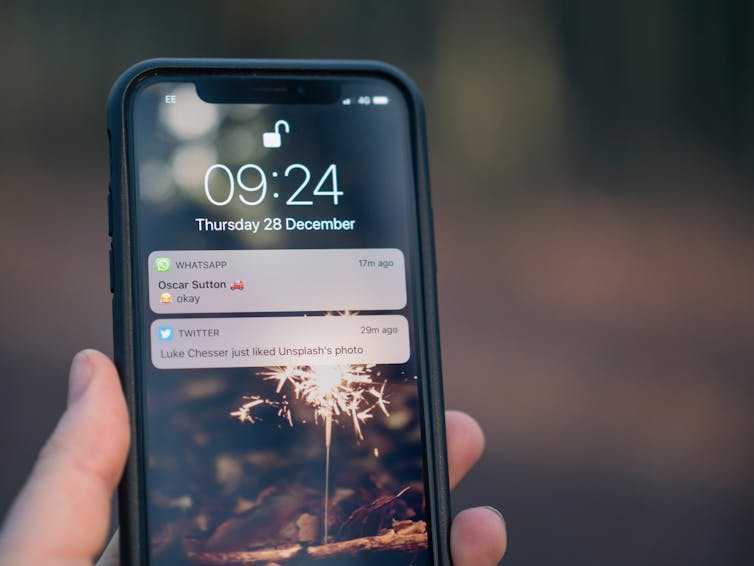No, you're probably not 'addicted' to your smartphone - but you might use it too much
Curated from: theconversation.com
Ideas, facts & insights covering these topics:
6 ideas
·7.08K reads
29
1
Explore the World's Best Ideas
Join today and uncover 100+ curated journeys from 50+ topics. Unlock access to our mobile app with extensive features.
Smartphone Addiction
There are about two billion smartphone users in the world, who check their devices on an average 85 times a day.
Checking your smartphone repeatedly is normally assumed as being addicted, especially in the younger age groups.
126
2.28K reads
Not Really an Addiction
While being glued to smartphones may look like addiction, for most people it is just a behavior pattern, a habit that can be broken.
A set of people may be having a fixation with checking specific apps on the smartphone, like a gambling site or pornography.
86
1.08K reads
Addiction Defined
The World Health Organization defines addiction as physical and behavioral dependence on a substance.
An addiction can create psychological harm and many social problems with family and friends
128
1.58K reads
Obsessive Behaviour, Not Addiction
- A smartphone is less of a real addiction and more of an obsessive behavior.
- We get small 'dopamine' hits in our brains, every time we see a social media like or something that provides us with a reward.
- We often use our smartphones as a weapon against boredom in public transport and boring tasks.
106
802 reads
The Pleasure Center
Social media rewards, like the number of views, comments or likes, engage us deeper into the virtual world, providing a sense of enjoyment via the 'dopamine' hits on the brain's pleasure center.
Social media occupies an average of 50% of the time spent each day with our smartphones.
82
639 reads
On the Verge of Addiction
Smartphones may be on the verge of being an addiction for some people, but over time it will become less of a problem as the society will adjust to it, just like it did with computers.
We need to address the compulsive usage of youngsters if their activities are potentially time-wasting or can cause psychological or other health issues in the long run.
77
693 reads
IDEAS CURATED BY
Preston 's ideas are part of this journey:
Learn more about mentalhealth with this collection
Leonardo da Vinci's creative process
How to approach problem-solving like da Vinci
The importance of curiosity and observation
Related collections
Similar ideas
2 ideas
Drug Addiction: How to get rid of it
shubhamsocio.blogspot.com
6 ideas
Can Your Smartphone Make You Mindful?
mindful.org
6 ideas
Debunking the 6 biggest myths about 'technology addiction'
theconversation.com
Read & Learn
20x Faster
without
deepstash
with
deepstash
with
deepstash
Personalized microlearning
—
100+ Learning Journeys
—
Access to 200,000+ ideas
—
Access to the mobile app
—
Unlimited idea saving
—
—
Unlimited history
—
—
Unlimited listening to ideas
—
—
Downloading & offline access
—
—
Supercharge your mind with one idea per day
Enter your email and spend 1 minute every day to learn something new.
I agree to receive email updates



